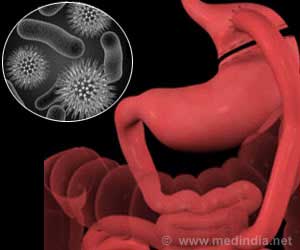A human gut microbe can aid in treating autoimmune diseases like multiple sclerosis. This gut microbe has been discovered by Mayo Clinic researchers.

‘Prevotella histicola, a gut microbe treats autoimmune diseases like multiple sclerosis effectively.’





The findings appear in Cell Reports. Of three bacterial strains, they discovered that one microbe, Prevotella histicola, effectively suppressed immune disease in the preclinical model of MS."This is an early discovery but an avenue that bears further study," says Joseph Murray, M.D., a Mayo Clinic gastroenterologist and senior author of the article.
"If we can use the microbes already in the human body to treat human disease beyond the gut itself, we may be onto a new era of medicine. We are talking about bugs as drugs."
Dr. Murray coined the term "brug" to refer to this approach.
The researchers found that P. histicola, which is cultured from the human intestine, caused a decrease in two types of pro-inflammatory cells, while increasing families of cells that fight disease: T-cells, dendritic cells and a type of macrophage.
Advertisement
"Our work is a classic example of a bedside to bench and potentially back to bedside study. Recent MS microbiome studies have shown the lack of Prevotella genus in patients with the disease and an increase when patients were treated with disease-modifying drugs," says Ashutosh Mangalam, Ph.D., first author and assistant professor of pathology at University of Iowa Carver College of Medicine, and principal investigator of the study.
Source-Eurekalert














